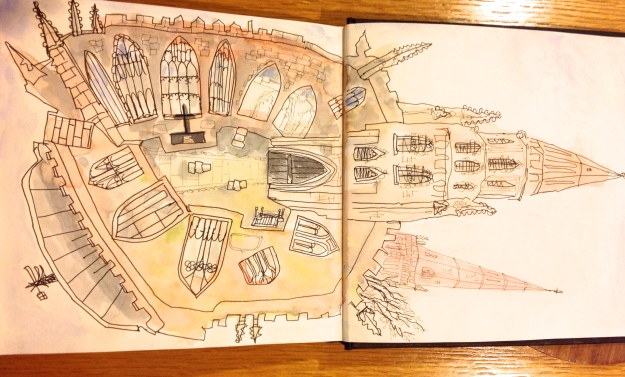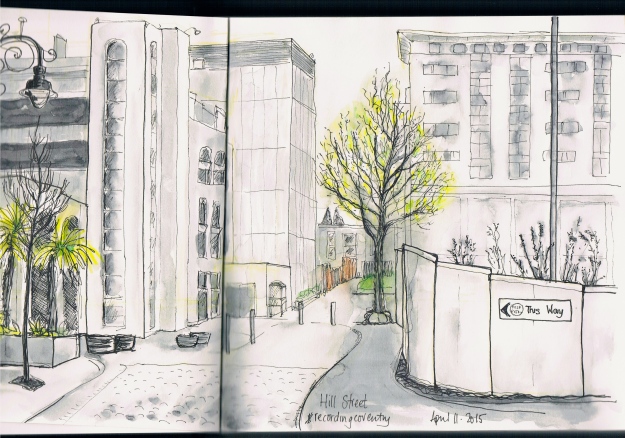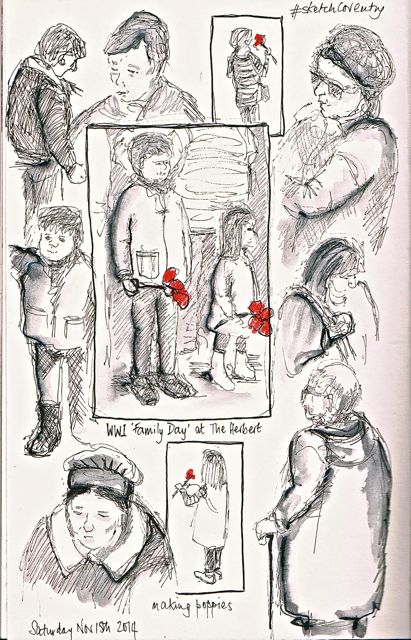Urban sketching has taken off since last July’s course in Oxford. Firstly, there has been another 3 day Urban Sketchers workshop based in Coventry, and secondly two of us have organised SketchCoventry, a monthly group that does just what it’s name says.
Although I’ve lived here for over 15 years, I’ve never felt particularly attached to Coventry, so when Jo Roberts and I were working on the ‘home’ project, I was very clear that Coventry was just a place that by chance I had ended up in and no more.
The 3-day workshop was all about perspectives, and it attracted quite a few sketchers who had never been to Coventry, as well as some locals like myself. We began in the Old Cathedral, abandoning any attempt at a classic perspective, which was such a liberating way to begin!
Other challenges included drawing without looking at the paper – the basis for this sketch of the cafe at The Herbert Art Gallery.
We tried a fish eye lens perspective, which was really difficult for me, as well as wrestling with the more familiar vanishing point version.
All the while I could hear other perspectives on Coventry itself from my fellow sketchers. Their reactions were very surprising! I expected them to rave about the market, Coventry’s jewel in the crown, but their appreciation of some other aspects came as a shock. My favourite comment came from a Danish woman who described the city as a “fascinating blend of the brutal and mediaeval”!
Seeing the familiar and disregarded through the eyes of others made me appreciate the city in a way that I hadn’t managed before. It’s like taking someone you’ve known for ages to a party and discovering that other people find them new and exciting. We can think that we know someone so well that there is nothing that they can say or do that will surprise us. We are sure we have exhausted all the possibilities, which can be comforting but inevitably dull. Then some one else is introduced into the picture and we realise that, after all, there were things we didn’t know or hadn’t seen.
Put a new member into a therapy group and listen in amazement as some long standing member talks about an aspect of their life that you have never heard of! Watch them shine or shrink and marvel at their transformation! Beware of thinking that you know someone ‘through and through’, whether this is you partner, parent, child – or even long-term client! Other people bring fresh perspectives that challenge our own limited vision.
We put people and places into boxes and are boxed up ourselves. Being able to open them, see round the corners, re-evaluate, is central to psychotherapy . Sketching too is a great way to re-engage with the familiar. It requires us to look at what is there rather than assume we already know what it looks like. And just in case we get too complacent about our new vision, a glance at all the other sketchbooks reinforces that there is always more to see.
PS. There are more sketches making their way onto the Urban Sketching page – I haven’t found a way to post blogs on both pages yet!





